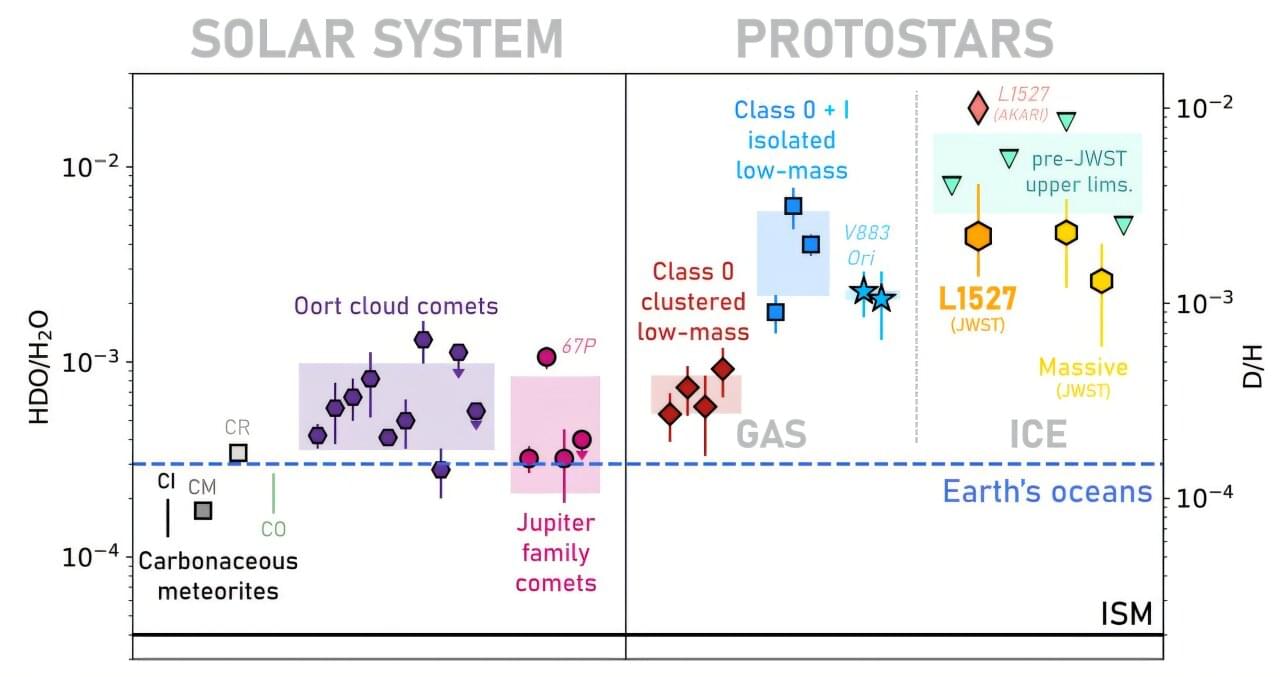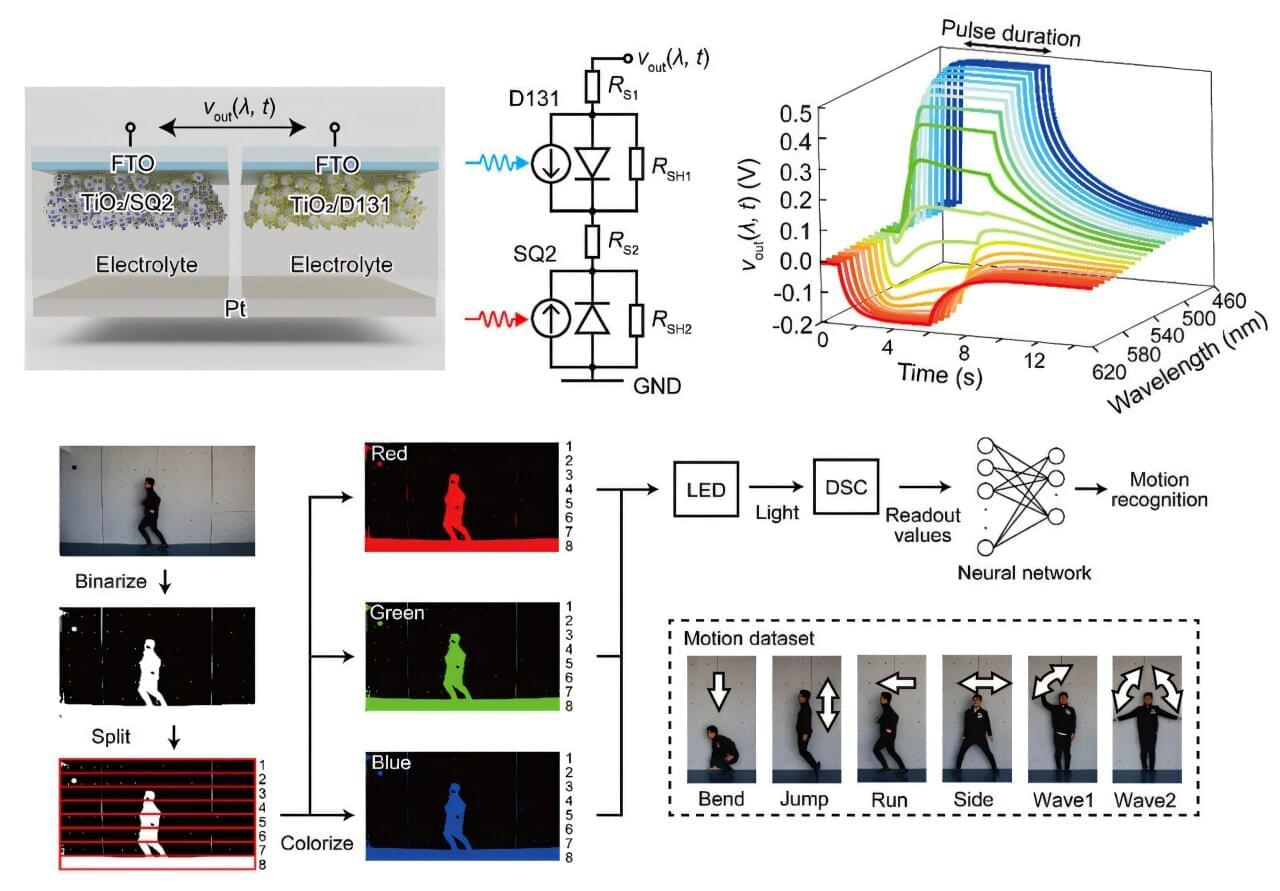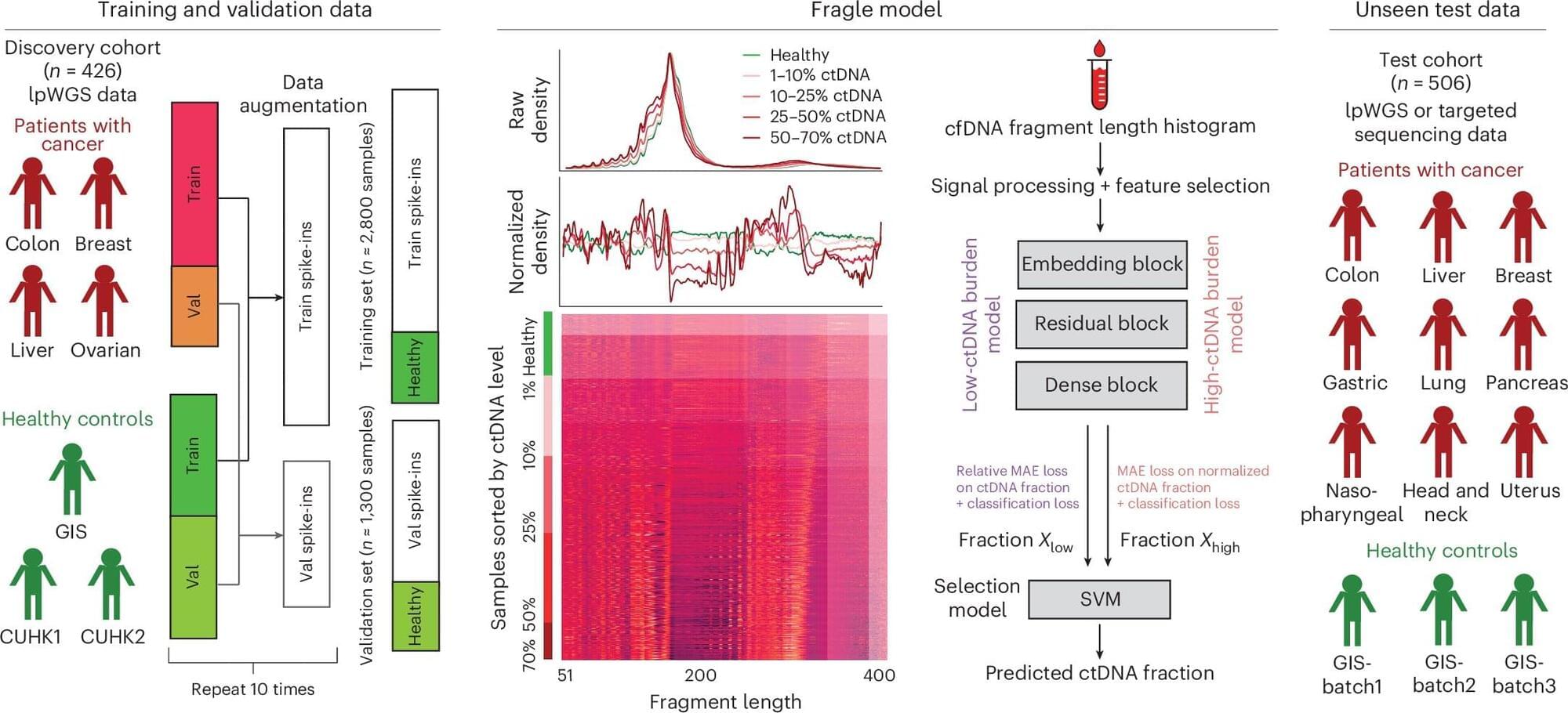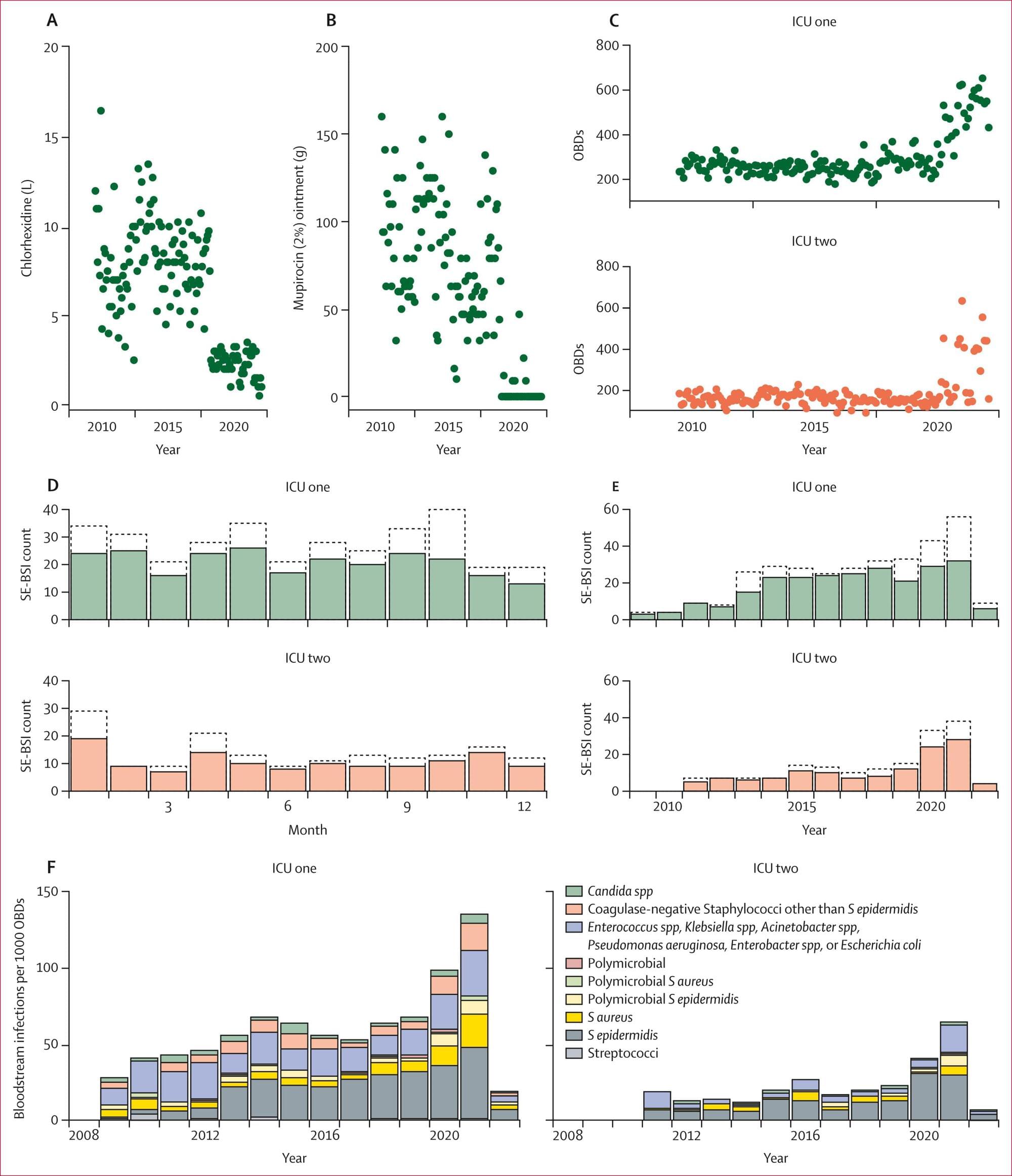A team led by astronomers at Leiden University in the Netherlands and the National Radio Astronomy Observatory in Virginia (U.S.) have, for the first time, robustly detected semi-heavy water ice around a young sunlike star. The results strengthen the case that some of the water in our solar system formed before our sun and the planets.
Their findings are published in The Astrophysical Journal Letters.
One way that astronomers trace the origin of water is through measuring its deuteration ratio. That is the fraction of water that contains one deuterium atom instead of one of the hydrogens. So instead of H2O, it’s HDO, which is also called semi-heavy water. A high fraction of semi-heavy water is a sign that the water formed in a very cold place, such as the primitive dark clouds of dust, ice, and gas from which stars are born.








